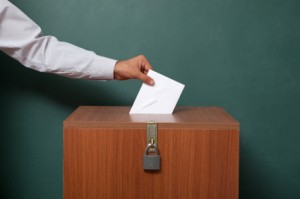David Kingman explores the British government’s recent proposal to fine people for not registering to vote, and its likely impact on the young
On 23 May the government announced that, as part of its new Electoral Registration and Administration Bill, people who repeatedly fail to vote will be eligible for fines.
The move, which follows the scrapping of a more draconian proposal which would have made failing to register a criminal offence, is intended to increase participation in the democratic process, which has fallen to worryingly low levels at recent local and general elections.
It is part of the range of wide-ranging changes to electoral registration which are included in the new bill, the most dramatic of which will be Individual Electoral Registration (IER). This system will require people to apply for electoral registration individually, replacing the previous system under which the Head of Household filled in a form saying how many eligible voters lived at their address.
How will it work in practice?
In announcing the move, the government has made it clear that it does not want [to avoid repetition of “intend”] these fines to be overly punitive. The Minister for Constitutional Reform, Mark Harper, made the following statement about its intended impact:
“We do think it is appropriate to create a civil penalty, akin to [a ??] parking fine, for individuals who, after being required to make an application [to register to vote] by a certain date, have failed to do so. [You don’t need to close the inverted commas at the end of the para, if the next para continues the same quotation]
“The Bill provides that after the registration officer has followed any specified steps and the individual hasn’t made an application then he can require them to make an application and if at that stage they fail to do so he can impose a civil penalty.
“The intention is that only those who refuse repeatedly can be fined. We don’t think it’s particularly helpful to democracy if we start fining hundreds of thousands of people.”
Importantly, revenue raised from the fines will be returned to central government, to prevent the local authorities which will administer the system from profiting by applying it excessively.
Will it increase democratic participation amongst the young?
Young people are one of the key groups amongst whom support for the traditional electoral system has eroded most dramatically, at least according to election turnout figures which show that people from older age groups are now significantly more likely to vote.
Solutions which encourage younger people to vote have been proposed by a variety of interest groups. This policy, which is designed to encourage higher turnout amongst all voters, does have its logic. The government’s thinking is clearly along the lines that, as people can’t vote if they aren’t registered, getting more people registered should increase turnout all by itself.
However, whether the stick they propose is sharp enough to encourage a dramatic increase in voter turnout is unclear. In a sense, the fines have to be fairly minor because otherwise they risk infringing peoples’ right to opt out of participating in the democratic system, yet if they are too cheap then people may simply ignore them.
Young people may be particularly likely to be caught out by this new system, as they are likely to move around more than people in older age groups. Young adults living in rented accommodation tend to change address fairly frequently, which often involves them moving between different local authority areas, perhaps even without realizing it, particularly in large cities.
Young people could end up being chased for registration by various local authorities which they used to live in, who are unaware of their changed circumstances. Designing a system that can keep up with the way individuals move around is clearly going to be one of the more challenging elements of this scheme.
On its own, it seems doubtful that fining people young who fail to register will do much to encourage democratic participation, and could even have a negative impact if young people see it is as the latest expression of hostility from an electoral set-up which does too little to make itself attractive to their political support.
The best proposal for attracting more young voters remains lowering the voting age to 16, as this will not only increase the number of young people who have access to the vote, but will also serve to make it clear to young people that the political parties takes representing them seriously.
Alas, there has been precious little discussion of this more positive reform in any of the debates surrounding these issues.
